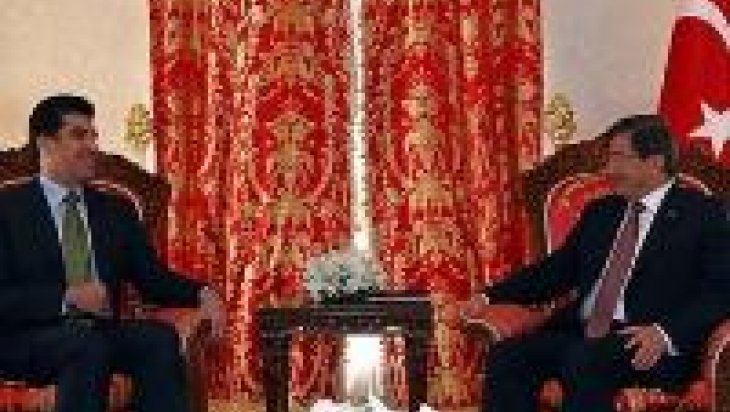The ISIS Operations and Turkey-Iraq Relations

The Islamic State of Iraq and Syria has acquired territorial dominance in Iraq as a result of its operations in June 2014 and started to increase its activity, therefore, in the regional political setting, new dynamics started coming to the fore. U.S. President Barack Obama announced the U.S. strategy for fighting against ISIS on 10 September 2014 and launched efforts for forming a coalition against ISIS in the scope of international fight against terrorism. Besides, the political balance in the Middle East started to diverge. Thus, it is an interesting development that British Prime Minister David Cameron had a bilateral talk with Iranian President Hassan Rouhani on 24 September 2014, during the United Nations General Assembly meeting. This is the first time Britain and Iran has made a bilateral talk since the Iranian Islamic Revolution in 1979. Even though Obama has not included Iran in its strategy against ISIS and Iran is known to oppose this strategy officially, the talks between Iran and Britain shows that regional dynamics must not be overlooked in the fight against ISIS. Therefore, the U.S. and other Western states attach a great deal of importance to the role of Turkey in the fight against ISIS. However, Turkey is concerned about whether the regional balance will settle down or worsen into a trauma as a result of the ISIS operations. Particularly for Turkey, the U.S. strategy puts forward the relations with Iraq as a practice issue. It is needed to examine Turkey’s relations with the Iraqi Central Government and the Iraqi Kurdish Regional Administration (KRG) separately.
There is a rapprochement in Turkey-Iraq relations, particularly after the appointment of Haider Al Abadi as Prime Minister after the 30 April 2014 Elections in Iraq. Turkey was the first state that formally congratulated Haider Al Abadi’s cabinet and generously offered it support for achieving stability in Iraq. In this context, there are potentials for cooperation between Iraq and Turkey in the fight against ISIS. However, there are also some different points between Iraq and Turkey on the issue of fight against ISIS. Before Obama announced the U.S. strategy against ISIS, the U.S and Western countries approved Iraq’s request for arms and ammunition and started military aid to Iraq. Thus, the U.S. announced that it would provide arms to forces that fight against ISIS, within the scope of its strategy. However, Turkey is against the arms aid, rightfully worrying that it would increase instability in Iraq and Syria. Since, after ISIS’s advance in June, Iraq is undergoing a resurgence of militia groups. The Iraqi central government provides arms to groups that fight against ISIS. After ISIS is weakened or eliminated, this situation may worsen the instability in Iraq.
At the same time Turkey, similar to the Iraqi central government, opposes the military aid to the KRG. As it is widely known, the Iraqi central government and the KRG have disputes about the control of energy resources, sharing the oil income, Kirkuk and the disputed regions, the KRG budget and the status of the Pashmarga and these disputes has still not solved. Once the ISIS threat subsides, the main problems in Iraq may once again resurface. Therefore, the arms aid by the U.S. and Western states is increasing armament and the risks for conflict. It is known that the Iraqi central government and the KRG had minor military skirmishes in 2011 and 2012. This is a negative development for Iraq’s territorial integrity and political union, which Turkey supports. Such developments in Iraq will not be limited and may have a negative effect on Syria. There is also the risk that the arms aid to the KRG will be captured by PKK, the terrorist organization that is settled in the KRG territory. Turkey has uttered this risk many times over. Turkey has explicitly mentioned about its concerns about this issue to the KRG as well. However, the KRG officials misunderstood Turkey’s concerns and KRG Prime Minister Nechirvan Barzani stated that they do not receive the support that they expect from Turkey. Therefore, this situation was questioned whether Turkey-KRG relations are worsening. Thus, KRG Prime Minister has held talks with President Recep Tayyip Erdoğan and Prime Minister Ahmet Davutoğlu, during his visit to the World Economic Forum in Istanbul on 28-29 September 2014. Even though there are no details about the talks, it is safe to say that the KRG seeks to rebuild trust. However, there are no changes in Turkey’s policy towards Iraq or the KRG in general terms. The relations are expected to grow stronger in the period ahead. Turkey acts willingly in order to strengthen cooperation in the region for providing stability. Since Turkey is going to provide intelligence and humanitarian assistance in the fight against ISIS, it might rejuvenate the trilateral mechanism between Iraq, KRG and Turkey, which was inactive for a long period of time. It is also possible that this trilateral mechanism is able to discuss the disputes about energy. Minister of Energy and Natural Resources Taner Yıldız hinted this issue in his speech in December 2013. Therefore, it is possible to expect a détente in Turkey-Iraq relations.










